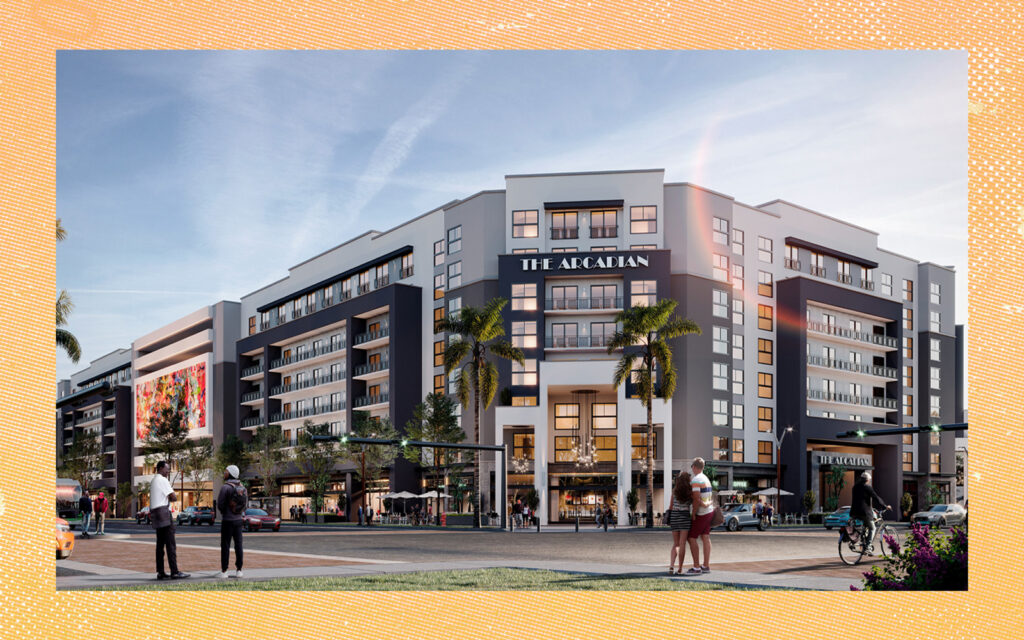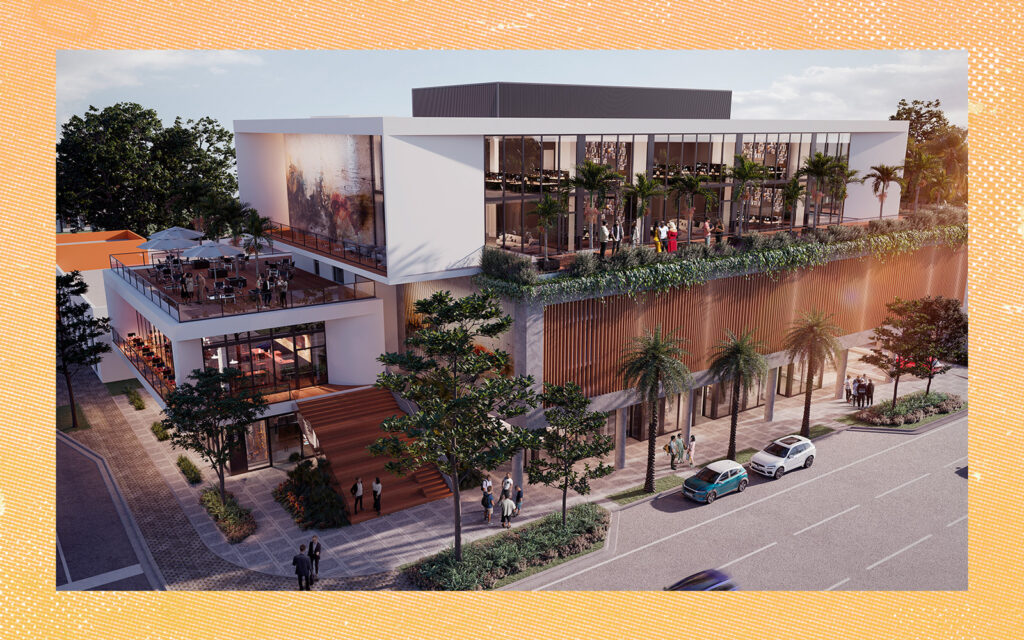The South Florida real estate party that began two years ago is over.
High interest rates, coupled with exorbitant insurance and construction costs, have halted the investment and development bonanza, and left some projects exposed to distress.
But for Fuse Group Investment Companies, the real estate party is only getting started.
Beginning in the third quarter, the firm will start rolling out a $250 million equity investment fund mostly in South Florida. It’s a bet on projects facing woes amid expensive refinancing and lack of lending options as banks have become skittish.
“It could be coming in as an equity investor or buying a distressed loan,” said Eyal Peretz, CEO of Fuse. “You got CMBS loans coming due. You have various re-triggering on pricing on the bank side that will require people to inject equity in the transactions. Those are the opportunities we will see in the market.”
The fund marks a continuation of a playbook that Peretz has hammered out well. First, stake out financially strained real estate. Then, swoop in with a rescue loan or buy out the distressed debt.
Although he moved from Israel in 2000 with plans for a much more low-profile career — he has degrees in biochemistry and a biomedical engineering — real estate beckoned.
“What I really liked about it is how dynamic it is and the human interaction associated with it, which definitely does not exist at that intensity of level in a laboratory,” said Peretz, 49.
After stints as a broker and investor, he saw the opportunities a down market offers when the Great Financial Crisis hit. Peretz pieced together homebuying funds, growing his pool of investors along the way and blazing a path toward forming Fuse. One of his early investors, Shimon Elkabetz, former CEO of Israeli insurance and finance group Harel, and Peretz partnered on a pivot fully into lending post GFC.
Fuse, which Peretz founded in 2015, with Elkabetz as chairman, has provided more than $1 billion in construction, acquisition and bridge loans.
But for years, Fuse has also billed itself as a developer. Yet, it’s much easier to trace the firm’s real estate plays by scouring loan records than it is to pinpoint a marquee project Fuse developed from the ground up.
That, however, is about to change.
Up-and-comer
When The Real Deal sent Fuse an emailed list of questions about its mortgage activity, the firm responded with six examples of closed deals. But when asked about instances of projects it completed from the ground up, the firm offered nothing.
Instead, it focused on the future. Fuse’s development pipeline includes more than 1,200 residential units and hundreds of thousands of square feet of commercial space across South Florida, according to the firm.
In the biggest sign of Fuse’s coming of age as a developer, the firm will begin construction this year of the fully approved eight-story, 480-unit The Arcadian apartment building in Fort Lauderdale.

The development will rise in the Historic Sistrunk district, a long-overlooked stretch of Northwest Sixth Street that’s poised for a rebirth in a manner similar to that of Fort Lauderdale’s Flagler Village that’s just east of Sistrunk. Investors have been scooping up buildable sites and aging properties in Sistrunk, now largely home to single-family houses and mom-and-pop businesses, with the vision to repurpose the gritty buildings into edgy retail, dining and office spaces.
Fuse has clear aspirations for Sistrunk’s revival.
Since 2016, the firm has paid $4.8 million for land and buildings, mostly in Sistrunk but also a few blocks from the district, records show. The one-story buildings it purchased were originally developed in the 1950s and ‘60s. Fuse has repurposed them and filled them with tenants the likes of a vegan café, a make-your-own candle shop and a flower store that sells bouquets paired with alcohol. The firm also moved its headquarters to one of the buildings in 2017.
“Eyal is playing the long game and investing in the neighborhood and in the buildings for the long term,” said broker Jaime Sturgis, who has known Peretz for years and has been leasing Fuse’s Sistrunk real estate.
On the heels of The Arcadian are two other projects. Also in Sistrunk, Fuse is eyeing a six-story, 77,000-square-foot office and retail project on its land at 909 Northwest Sixth Street. South of there in North Miami, the firm wants to repurpose the studio where “There’s Something About Mary” and “The Birdcage” were filmed into a town center and build 400 apartments at the site.

“Our major construction is ahead of us; not behind us,” Pertez said.
Down-market blitz
In 2021, Fuse acquired 17 properties mostly in Miami through a credit bid at a bankruptcy auction. It was part of the Metronomic scandal in which the development firm’s plans for a massive mixed-use project in the Coconut Grove neighborhood crashed when it filed for bankruptcy following a slew of foreclosure suits from pissed off lenders, including one filed by Fuse over its $17.7 million mortgage for the project.
While Peretz called the case “water under the bridge,” accusations that Metronomic, led by Ricky Trinidad, levied against Fuse in a countersuit to the lender’s foreclosure action remain etched in court records.
Fuse’s mortgage really was a “loan-to-own strategy,” as the financiers refused to release construction draws and provide records Metronomic needed to refinance, Metronomic claimed in filings.
“Accusing a lender and winning an argument are two different things,” Peretz said about the case. “If you look at the bankruptcy case, he [Trinidad] had unsecured creditors in exorbitant amounts that lost all their money in his endeavors. It’s speaking for itself.”
Yet, others who have crossed paths with Fuse, including lawyers who have bucked up against the firm, have nothing but praise to offer.
Those who handle distressed real estate “usually have very sharp elbows,” said attorney Michael Ehrenstein. But in the case of Fuse, “I was surprised by the genuine warmth of the personalities.”
Ehrenstein represented Fuse when in 2021 it bought out the note on downtown Miami’s Security Building that was under a $46 million foreclosure filed by another lender, thereby acquiring the historic 17-story office asset.
Fuse is working to fill the building, which is 80-percent vacant, with the only other tenant being office space provider Myflexoffice, according to leasing agent Ana Paula, of Colliers.
The firm’s strategy to acquire assets by buying out the troubled mortgages could come into play with its $250 million investment fund.
The expensive refinancing costs from traditional lenders won’t create a “tidal wave of destruction” in South Florida, Peretz said.
But some developers will need an equity boost or a flat out buyout from their project.
“What we will start seeing in the market is that there are projects that have difficulties coming off the ground and require either recapitalization or alternatively stronger team to enable a development process,” Peretz said. This year, “there will be a lot of interesting things happening.”
Read more


